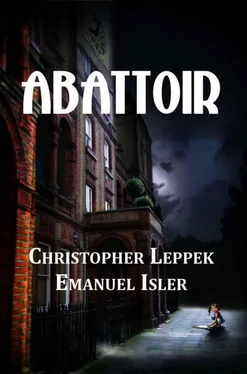“Thank you, Sharon. This is my daughter, Anna. She’s five years old.”
The little girl, pretty like her mother, kept her head down, eyes glued to the tabletop. She said nothing.
“I’m not used to speaking in front of others. I came to this country when I was five years old, from Vietnam. I was among the last to leave Saigon before it fell. I guess you have all heard the story of the refugees.”
Heads nodded.
“My daughter and I are here because this is where I’m convinced my husband would have wanted us to be. It’s a beautiful place, and I think I like it because it’s so quiet, so far away from all the bustle and noise.”
She paused and looked at Knaster. “Sharon, I’m so grateful that you introduced us to this place… and for everything else you’ve done.”
Cantrell already knew a little about Su Ling from having gone over her lease papers. He wanted to know more. There was something mysterious about her, something compelling. He liked the way she didn’t offer her whole biography to this room of strangers.
He looked at his watch. “It’s getting late, folks, and I know you have a lot of things to do before you move in. A couple of details: You have your keys. Please adhere to your moving schedules, and do feel free to call on me for anything. Welcome home, folks.”
The tenants filed out one by one, shaking Cantrell’s hand and congratulating him. When Su Ling passed, she gave him a subtle smile.
§
Cantrell stood alone in the foyer. He wasn’t sure how to feel. The place was no longer a project, no longer merely a concept. It was open for business, with real flesh and blood residents. He had arrived, but the feeling was vaguely bittersweet, somehow anti-climactic. In many ways, his job was done. For the next year or so, he would consider himself on architectural sabbatical, devoting all his energies to getting the Exeter off the ground and running smoothly.
He would be the manager, of course, which would entail a lot of work, but that was a far cry from being the creator. Would he be able to adjust to his new role? Would it bore him? Maybe it would drive him mad to see his creation slowly decay around him, to lose its veneer of newness.
Would he need another project someday?
The sun was setting, sending angled rays down through the skylight. As he ascended the stairs to his own flat, he paused, staring at the shadows cast by the wrought iron railings, feeling a vague sense of unease. The shadows puzzled him . The angles looked somehow off kilter—slightly expressionistic.
He knelt on a stair and brought his eye close to the iron railing, looking up into the rotunda design. It looked perfect to him, exactly as he designed it. Everything was square, level and plumb, the angles exactly as they should be.
But when he stepped back and regarded the shadows once again, it still seemed oddly different.
He laughed at his own life-consuming obsession with perfection. Now it looked like it’d finally started to take a toll on his sanity.
=§=§=§=
The disturbances spread through everything.
They were manifold, seeming to come from all directions—vibrations, changes in light and temperature, shifting currents of air.
They were frightening.
It had been quiet here for so very long. Then change; a period of unsettling disorder . It was terrifying.
But these upheavals were different; more gentle, yet pervasive, as if they would never cease.
And that was worse than terrifying.
Quickly, very quickly. Not looking— hunting —for the source; openings were crossed, solid obstacles passed through, hard and unyielding surfaces seeming to melt.
Finally, from high above, through the prismatic film where the light was always the strongest, they could be seen. What they were was impossible to say, but there were many of them; different shapes and sizes, different vibrations and temperatures emanating from them.
One of the shapes was smaller than the rest. Its vibrations were different—very different—from the others. There was something there …
=§=§=§=
The Exeter was coming back to life.
By mid-morning, over ten residents had successfully transferred their belongings from trucks and vans into their new flats.
Cantrell had orchestrated the move impeccably. He oversaw the entire process watching the movers haul furniture and boxes across the matted floors and staircases.
There had been two mishaps:
The first involved an antique armoire; the property of the Sloanes. The mover seemed to be doing fine, transporting it through the foyer, until he lost his balance. The dolly listed, threatening to spill the armoire, until Cantrell rushed to his aid.
The worker mopped his brow and thanked Cantrell, shaking his head in disbelief.
“I’ve been movin’ for over twenty years,” he said in a confused tone, “and not once have I ever dropped anything. I could swear to you on a Bible that somebody was on the other side on this armoire here, pushing on it.”
Cantrell gave the incident no more thought.
The next incident occurred two hours and two moves later, and proved somewhat more calamitous:
The front wall of the building shook as a huge crate slammed against it: A crated piano, hoisted via pulley, since the crew had determined it was too big to go up the stairs.
Cantrell rushed outside. Christ, had a truck hit the building? Instead, he saw workers on the second floor reaching for the cable. It flailed beyond their grasp, the heavy piano swinging wildly. On the inward swing, it struck the building’s facade.
And screamed—the discordant sound of a musical instrument gone insane.
The workers froze in their tracks, as did Cantrell. Their expressions changed in an instant from grimaces of hard labor to blank stares of panic.
When the swinging slowed down and they brought the piano back under control, they laughed at their own reactions.
Cantrell glanced up at the building and was relieved to see no damage. Aside from a splintered crate, the piano itself seemed to be okay. But the sound of the piano’s shriek resonated in his mind long after it had grown silent.
§
“How’s it going?”
Su Ling had stopped to rest in the hallway before her open apartment door. She put down two huge shopping bags, wiping her forehead as she regarded Cantrell.
“I forgot how hard moving is,” she smiled breathlessly.
“Let me help.”
She hesitated for a moment, but smiled permission. He followed her into the apartment, which looked like a warehouse with its piles of unopened cardboard boxes, stacked chairs and luggage.
Cantrell noticed that Su Ling’s possessions were modest, especially in comparison to those of the other residents. The furniture was simple; mass produced rather than high-end. It looked to be at least ten years old. But the chinaware she had stacked on the counter looked authentic. Its intricate Oriental design suggested a family heirloom.
He made no superficial judgment about what he saw. In fact, knowing that Su Ling’s circumstances were different than all of the others was refreshing to him. He felt her pride and sensed her values. Of her material goods, he couldn’t care less.
She directed Cantrell where to place the bags he’d carried in. She thanked him.
“I should be the one thanking you,” he said. “You did a great job with the ceremony yesterday. I really liked the idea that your daughter did the honors with the ribbon.”
She smiled widely.
“I could tell it meant a lot to you,” she said. “Unfortunately, I’m not sure how much Anna was able to appreciate it.”
Читать дальше












